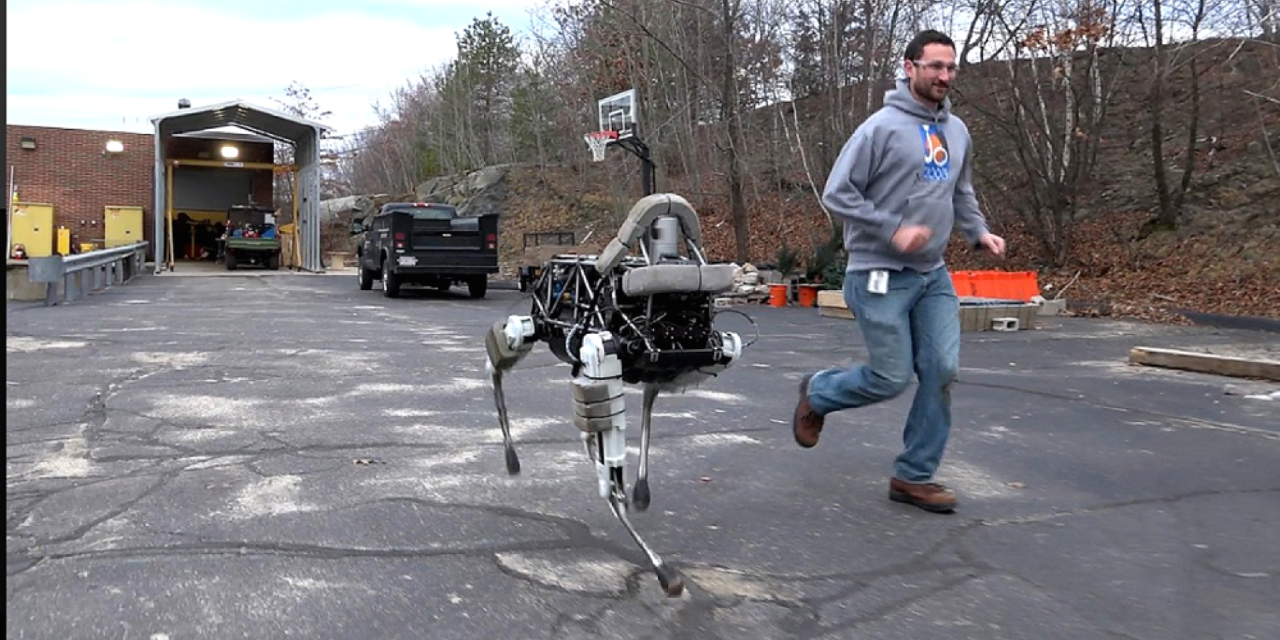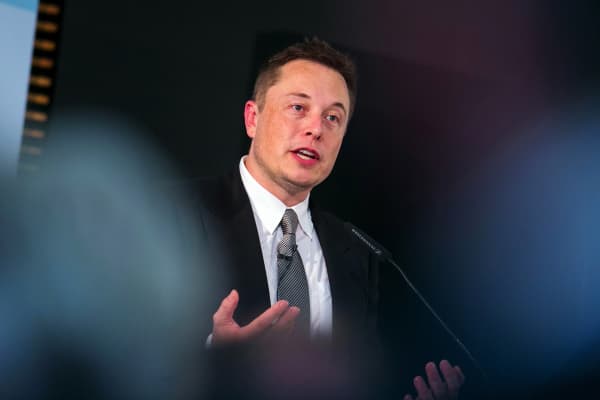The infiltration of the Internet into modern life changed everything from how we communicate to how we shop to how we learn information.
The forthcoming permeation of robots into our world of the future will cause an even more significant change in modern life and business than the Internet already has, according to a prominent roboticist.
“I happen to believe that robotics will be bigger than the Internet,” says Marc Raibert, the CEO and founder of robotics company Boston Dynamics.
“The Internet lets every person reach out and touch all the information in the world. But robotics lets you reach out and touch and manipulate all the stuff in the world — and so it is not just restricted to information, it is everything,” says Raibert, who spoke from the Future Investment Initiative in Riyadh, Saudi Arabia, at the end of October.
Indeed, Raibert is building that reality. Boston Dynamics, which was bought by SoftBank from Alphabet in June, builds robots that look like humans and animals.
“When we have robots that can do what people and animals do, they will be incredibly useful,” Raibert says.
For a robot to be able to operate like people and animals requires sophisticated skills: mobility, or the ability to move around; dexterity, the ability to use your hands and fine-finger manipulation; and autonomous perception, the ability to see objects even as the seer is moving around, says Raibert.
When robots have these three capacities, they will be able to entertain us, deliver packages and help with security functions, emergency response and construction, says Raibert.
“I think one of the most important applications will be taking care of people. They will help you take care of your parents, so that you don’t have to spend so much time doing that,” says Raibert.
At the same conference in Saudi Arabia, SoftBank CEO Masayoshi Son painted a future where robots are increasingly capable.
Son said the moment where robots become as smart as humans — known as the singularity — will happen in this century, “for sure.” He predicts in three decades robots will have an IQ score of 10,000. By comparison, Son says an average person’s IQ is 100 and a genius has an IQ of 200. Mensa, “the High IQ society,” starts accepting members with an IQ score of 130.
“We mankind created tools, the premise was mankind were always smarter than the tool we invented so we control,” Son says. “This is the first time … the tool becomes smarter than ourselves.”
The future that both Raibert and Son are in their own ways describing — where machine intelligence becomes increasingly capable and embedded in human life — elicits opposing viewpoints from top technology leaders in the United States.
In July, Tesla and SpaceX boss Elon Musk said “robots will be able to do everything better than us,” and that is a future that frightened him. “I am not sure exactly what to do about this. This is really the scariest problem to me, I will tell you.”
To him, the potential of the artificial intelligence is a threat. “I have exposure to the most cutting edge AI, and I think people should be really concerned by it,” Musk says. “AI is a fundamental risk to the existence of human civilization in a way that car accidents, airplane crashes, faulty drugs or bad food were not — they were harmful to a set of individuals within society, of course, but they were not harmful to society as a whole.”
Meanwhile, Facebook founder and CEO Mark Zuckerberg rejects the kind of pessimism Musk promulgates.
“I have pretty strong opinions on this. I am optimistic,” said Zuckerberg, also in July. “I think you can build things and the world gets better. But with AI especially, I am really optimistic. And I think people who are naysayers and try to drum up these doomsday scenarios — I just, I don’t understand it. It’s really negative and in some ways I actually think it is pretty irresponsible.”


